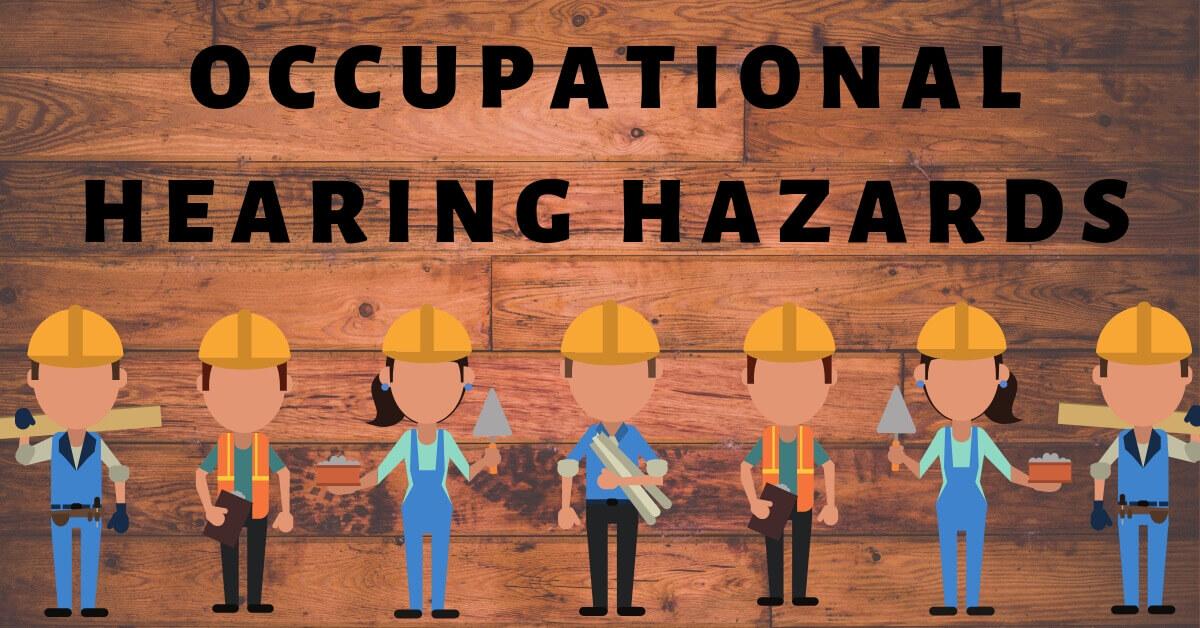- The Benefits of Being Social for Older Americans - February 29, 2020
- Common Excuses for Not Buying Hearing Aids - February 29, 2020
- How Treating Hearing Loss Improves Your Relationships - February 18, 2020
Noise is everywhere. Some of it has been with us for so long that we just take it for granted – like traffic noise or heating and cooling noise. But we need to realize that sound can reach a certain level where it becomes hazardous and even dangerous. Sometimes there is no escaping the noise because it’s part of our workplace. It is important to set establish a baseline for your hearing with an evaluation at All Ear Doctors, and it’s important to take measures to protect your hearing – at work and at home!
Workplace Noise
More than 22 million workers are in a job that exposes them to potentially damaging noise. In 2018, U.S. businesses paid out more than $1.5 million in penalties for failing to adequately protect their employees from disabling noise damage. An estimated $242 million is spent annually on workers’ compensation for hearing loss disability. Insurance costs and lost productivity for one employee due to hearing loss can reach $300,000 over that employee’s lifetime.
Occupational Safety and Health Administration guidelines address noise in the workplace. Hearing loss in the workplace is pervasive and it is also preventable. Some particularly hazardous workplaces may surprise you. Those in danger include:
- Airport staff. Jet engines can emit up to 140 decibels of sound – anything over 85 is considered dangerous and airport staff is constantly subjected to noise and straining to hear each other and communicate.
- Entertainment managers and tour managers. Sure, touring with your favorite band or managing a venue and booking your favorite band seems like a dream job. But the music and crowd noise can push the sound decibel level over 115 and even higher if you are close to the speakers. Musicians also leave themselves open to hearing loss over time.
- Construction workers are around equipment like sand blasters and jackhammers. Decibel levels of the average piece of construction equipment range from 110 to 125.
- Racing support staff. Engine noise can go to 135 decibels and beyond.
- Military personnel on base with aircrafts and weapons practice are barraged by sound over 140 decibels.
Ear Damage
Exposure to loud noise, over a period of time or in one single incident, damages and then kills the nerve endings in the inner ear. For a time, the other nerve endings compensate, but eventually the damage is too severe and widespread and hearing loss is the result.
Some of the signs you may experience if your workplace is damaging your hearing is ringing in your ears hours after leaving work and a sensation that seems like your ears are full. Conversations may seem muffled and you may be able to tell people are talking, but you can’t seem to process the exact words they are saying. Noise induced hearing loss limits your ability to hear high frequency sounds, like women and children’s voices, and also limits the ability to process conversation.
Noise protection
Employers who are aware their employees may damage their hearing in the workplace should provide devices that protect the hearing as well as clear instructions on how to use the hearing protection. At the bare minimum for protection are ear plugs. They need to be replaced when dirty or worn and they should be compressed and rolled and then inserted in the ear canal where they expand to block the noise.
Custom ear plugs can be ordered and fitted if ear canal structure does not allow for the use of standard ear plugs. Many people who experience difficulty using ear plugs purchased at a store can benefit from custom-molded ear plugs available at All Ear Doctors.
In cases where noise is quite higher than the 85-decibel range, noise cancelling ear muffs as well as ear plugs may be necessary. For employees subjected to continuous loud machine-generated noise, quiet areas where they can take breaks should be provided. Employees can also be rotated on work stations so they are only exposed to loud machinery for a limited duration and then moved to a quieter area.
Get a Hearing Test
Your hearing is not a renewable asset. Once it is lost – it is gone. Yes, hearing devices can aid you, but protecting your hearing with a hearing test to establish a baseline and then having it monitored periodically at All Ear Doctors is the best course of action.

